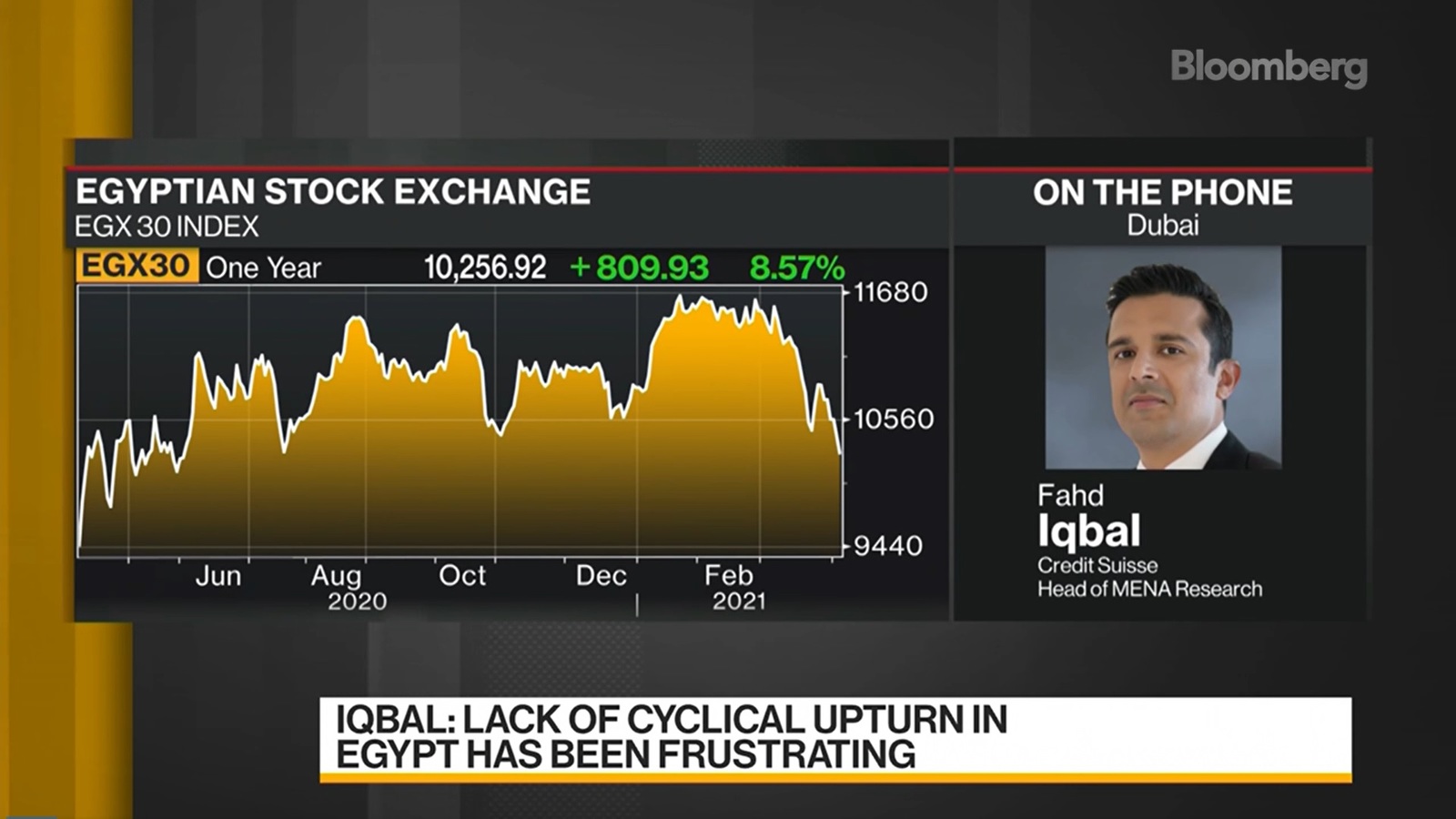Structural reform is more than just a buzz phrase, it’s what Egypt needs

The Egyptian economy’s cyclical rebound from the pandemic “keeps getting postponed,” Credit Suisse head of MENA research Fahd Iqbal said on Bloomberg Daybreak this morning (watch, runtime: 8:47). “There are only a handful of countries in the Middle East where we really started to see the vaccine rollout go through in a meaningful way,” meaning that Egypt — a country relatively slow in its vaccination program — could see “a lag” in this upturn. A delay in vaccinations would also slow down how quickly a global rebound from the covid-19 crisis translates into gains for trade and tourism and for Egyptian equities, Iqbal said. “The upcoming [EGX] earnings season is going to be quite critical in terms of seeing whether or not that cyclical recovery is indeed manifesting itself,” he added.
But is a cyclical recovery enough? Egypt needs a “better structural growth outlook,” Iqbal points out. This has to happen through more support to the private sector, a portion of which feel it is being “crowded out” of macroeconomic gains, he says. Policymakers need to ensure Egypt is supportive of enterprise growth and develop “a regulatory environment at ease,” as well as make an effort to improve private sector access to capital. “The fact that it is being addressed is certainly an encouraging first step.” But historically for many parts of the MENA region, the delivery of such policies “has been a bit more underwhelming versus what the market was expecting,” Iqbal adds.
DIVE DEEPER- We’ve recently covered a research report by HSBC’s Simon Williams, who says the country’s economic challenges stem from structural issues including heavy state involvement, weak capital formation, weak national savings, and poverty.